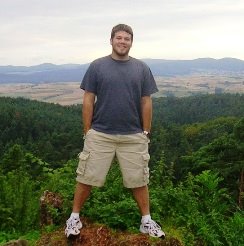text, from tex-ere, "to weave"
Time is rushing by and I have the power outage to thank for being considerably behind my own proposed schedule for Dr. Argyros' paper...
I think it's coming along really well, though. I've found it impossible to approach the museum as a text without the help of Paul Celan. At first I thought invoking Celan would make things more difficult, but I'm beginning to believe that his words allow for a fundamentally more navigable museum. Perhaps I'll post my introduction to the paper here:
How does a city “house” the memory of a people no longer at “home” there?
James Young[1]
Reachable, near and not lost, there remained in the midst of the losses this one thing: language. It, the language, remained, not lost, yes in spite of everything. But it had to pass through its own answerlessness, pass through frightful muting, pass through the thousand darknesses of deathbringing speech. It passed through and gave back no words for that which happened; yet it passed through this happening.
Passed through and could come to light again, “enriched” by all this.
Paul Celan[2] The construction of Daniel Libeskind’s architectural masterpiece at 14 Lindenstraße in Berlin’s Kreuzberg section triggered controversial criticism ranging from fierce opposition to devoted admiration. The building’s layout and design naturally engendered debate simply due to the purpose the structure was created to fulfill: a Jewish extension to the Berlin Museum. James Young’s question reveals the inherent difficulty in designing such a building; in order to present Jewish history as a function of the history of Berlin, a large portion of the exhibit must, by necessity, deal directly with death. While considering how to architecturally express the ambivalent history of a people who, like Celan’s language, passed through the depths of darkness, but, conversely, did not emerge, Libeskind attempts to render the vivacity of a community that did exist alongside the facts of its vicious destruction and subsequent nonexistence. In this building, architectural language takes its own journey through the darkness, encountering faceless voids, labyrinthine halls, compressed spaces and narrow passageways. Libeskind’s language passes through all this and emerges, undoubtedly changed by its descent into the depths of death and its ascent through the history of a Jewish-German symbiosis. In recreating spatially the journey which Celan speaks of in his Bremen speech quoted above, Libeskind’s Jewish Museum functions like a text, in which the visitor, as viewer/spectator, becomes the reader. The journey through the museum unveils multiple levels of narrative while serving as a commentary on the subject-position in relation to the traditional museum and its exhibitionary spaces. Libeskind’s Jewish Museum of Berlin subverts this relationship, and the individual, or spectator, becomes the subject of the museum’s narrative. At the same time, this controversial theme exists as a counterpoint to the history of Jews in Germany that the spectator encounters in the museum. Thus Libeskind, as a direct result of his innovative design, weaves two stories throughout his architectural narrative; a critical analysis, then, relies on an investigation of the relationships that then develop between Libeskind's building and the exhibit, and the exhibit and the spectator.
That'll give an idea as to where I'm going with this.
So for now, back to the paper.
Nacht.
Nacht-und-Nacht.
-BW

